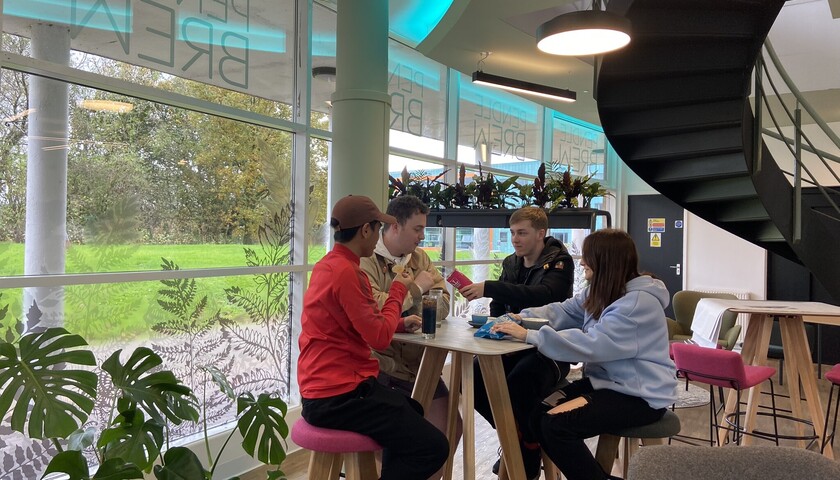Sociology explores the big questions in today’s world. What is the true impact of migration and racism on individuals and communities? How does living in poverty affect health and wellbeing? What are the social challenges of rapid technological change? How is our daily life influenced by environmental change and how has society changed the environment? This course explores these questions and many more, equipping you with the skills, knowledge and confidence to act as a force for change in your chosen career.
Why Lancaster?
- Choose a course that is committed to making a positive difference in society through activism and research, with real-world impact locally, nationally and internationally
- Build on your knowledge outside of the classroom through collaborative work with local organisations and guest lectures from international experts and civil society leaders
- Learn from world-renowned academics who contribute to important policy decisions through advisory groups, media appearances, blogs and speeches
- Learn advanced skills in analysis, communication, teamwork, and statistical analysis from our experts
- Take part in lively debates and carry out your own research into topics that matter to you - whether that’s climate change, inequality, gender identity, migration, social justice, race, globalisation, disability – the choice is yours!
Thinking global, acting local
The social issues that national governments and local organisations must tackle don’t come packaged in neat boxes, separated from global challenges. So, we don’t believe you should study like that either. We encourage you to see situations from different perspectives, to understand the bigger picture and build skills to respond to social challenges in meaningful, creative ways.
This course will help you develop a strong understanding of the world around you, the challenges it is facing, and the solutions needed to help tackled these issues. You will explore themes such as identity, inequality, migration, and climate change, as well as social justice, race, globalisation and gender. Through studying these topics from both global and local perspectives - with examples from each - you will gain a detailed understanding of complex situations. You’ll learn how to ask the right questions and take the bigger picture into account when developing creative solutions.
We will develop your critical thinking skills with a focus on the issues that matter to you, reflecting on your interests and life experiences. You will be encouraged to develop a range of effective communication tools and advanced research skills, so you can put your own investigations into topics of interest. You’ll learn to think ethically and sociologically about matters, whether local or global. By the end of the course, you’ll feel empowered to enact positive social change in the world around you.
A world-leading centre for Sociology
Lancaster University is at the cutting-edge of Sociology research. We take a truly global approach. You will benefit from being taught by a community of sociologists whose expertise ranges from the stigma of poverty to environmental change and degradation, from global reproductive rights to gender and sexuality, families, racism and migration. Our supportive and encouraging academics are fully accessible to our students. They share the latest findings from their research at the forefront of the field.
In your final year project, you will be able to draw on their extensive experience to inform your choice of a research topic that is personally important to you, using the advanced analytical skills you have learned through your degree. Throughout your dissertation you’ll be guided by one of our expert academics.
Examples of topics students have previously chosen include:
- The impact of Covid-19 on working mothers
- Online hate and activism
- Refugees and resettlement programmes
- Abortion and the rise of the far right
- Homophobia and inclusion in sport
- Decolonizing climate activism
A vibrant community
Sociology at Lancaster is designed with students at the centre; prioritising your professional, academic and personal development. You will have regular meetings with our academic staff to discuss your progress and build on your study skills and take part in social activities with fellow students.
We organise lots of activities to complement your course and extend your experience and networks. We work with major international and national bodies such as the European Parliament, UNESCO, Equality and Human Rights Commision, and Defra. We also work with major science bodies such as the Royal Society and the Natural History Museum, leading corporations such as Intel and Microsoft, and NGOs including NSPCC, Women’s Aid and Age UK.
Major international conferences, film screenings, public events, and seminars with speakers from external organisations – all of these events and opportunities are valuable for growing your professional network and provide opportunities for professional development, collaboration and discussion.










